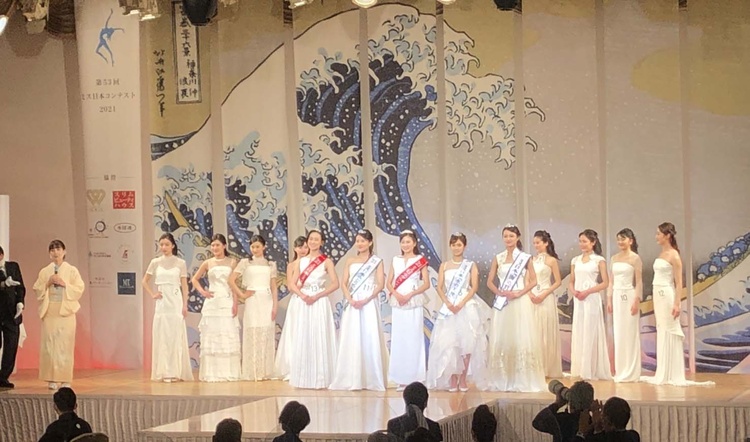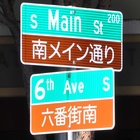
Is it nationality or lineage that's the issue?
With the Paris Olympics just around the corner, the athletes selected to represent Japan in each sport are being announced one after the other, including many with foreign roots, such as tennis player Osaka Naomi (father from Haiti), men's basketball player Hachimura Rui (father from Benin), women's basketball player Magua Evelyn (both parents from Ghana), track and field 100m athlete Sani Brown Abdel Hakim (father from Ghana), and 110m hurdler Muratake Rashid (father from Togo).
In order to represent Japan at the Olympics, one must have Japanese nationality, and the selected representatives of course also have Japanese nationality, so even if a person has foreign roots or is half-breed or mixed-race, there is no debate about them becoming a representative player.
However, in January of this year, a Japanese person with foreign roots ended up representing Japan in a "beauty contest," which sparked criticism and slander, and this in turn sparked renewed debate about what it means to be "Japanese" or what it means to be "Japanese."

In the 56th Miss Japan Contest held in January this year, Shiino Carolina was chosen as the grand prize winner (though she later declined the award). The first grand prize winner of this contest was Yamamoto Fujiko, who later became an actress, and has since produced other winners such as Fujiwara Norika.
Shiino was born in the eastern Ukrainian town of Ternopil and moved to Japan with her Ukrainian parents at the age of 5 and grew up in Nagoya. She obtained Japanese citizenship in 2022. At the time of the contest, she was working as a model.
Her Grand Prix win sparked critical comments on social media, and foreign media also picked up on the story, raising questions such as, "What does it mean to be Japanese?"
An article in BBC News Japan quoted the following comments:
"She's not even half Japanese, she's 100% Ukrainian," "I understand that she's beautiful, but where is her 'Japaneseness' in her, even though she's Miss Japan?" "Shiino said, 'If she was half Japanese, it wouldn't be a problem, but she's 0% Japanese, and she wasn't even born in Japan.' If someone with a European appearance is chosen as the most beautiful Japanese person, I think Japanese people will naturally get the wrong message."
The basis of these criticisms is, firstly, that "bloodline" is more important than nationality. Another is that Shiino's appearance is Western and different from that of the average Japanese person. In other words, they are questioning the basis of bloodline and appearance.
The article quotes Shiina as saying, "I applied for naturalization because I wanted to be recognized as a truly Japanese person," and commented on her victory, "I am filled with gratitude for being recognized as a Japanese person."
The Figaro Japon article also quoted Shiino as saying after winning, "Due to racial barriers, it has been difficult to be accepted as a Japanese person. I am filled with gratitude to have been accepted as a Japanese person at this competition."
It is clear that "being recognized as a Japanese person" is important to Shiino, but this is not something that can be achieved simply by acquiring citizenship; racial barriers must be overcome; and for that reason, being chosen as Miss Japan was a key point in order to be recognized as a Japanese person.
This point reminds us of the position of second-generation Japanese Americans before and during the war. Even though they were born in the United States and had American citizenship, they were not recognized as Americans. They were faced with a psychological conflict of what to do. In addition, even though second-generation Japanese Americans had citizenship, they were not able to enjoy it because they were put in internment camps.
Returning to the topic of beauty pageants, there have been similar incidents in beauty pageants before, such as Miss Japan. Miyamoto Eliana, who was chosen to represent Japan in the international beauty pageant "Miss Universe" in 2015, received slanderous comments. Born and raised in Japan with an African-American father and a Japanese mother, and of Japanese nationality, she said she entered the pageant out of a desire to encourage people who share her roots in the same countries as herself, who are subject to discrimination and prejudice. However, she received a lot of slander, including comments questioning her "Japaneseness."
Furthermore, when Yoshikawa Priyanka, who has an Indian father and a Japanese mother, was chosen to represent Japan at the Miss World 2016 competition, there was criticism and dissatisfaction with the selection process from the perspective of "Japaneseness."
"Japanese" is indefinable
The Miss Japan Association, a general incorporated association which organizes the Miss Japan contest won by Shiino Carolina, states the concept of the contest as "Japan's top beauty contest, which aims to hone 'Japanese beauty' and encourage contestants to play active roles in society. Beauty is not just about physical appearance, but also a wide range of human qualities, including attitude and sociability."
The contest is not just about appearances, but also about "Japanese beauty," so there are no other specific conditions or standards. As long as the judges determine that the contestants have "Japanese beauty," nationality or lineage is irrelevant.
Therefore, logically, if there is any criticism, it should be the judging criteria and the contest itself. In fact, there was an opinion that the standard should be "Japanese beauty." However, the Japanese beauty that this opinion refers to is a matter of appearance, so if that is the case, it is necessary to bring in a concrete standard such as "having a classically Japanese appearance."
Conversely, the answer to the question of what "Japaneseness" or "Japaneseness" simply means may be categorized if a large-scale survey is conducted, but it is unlikely that it can be defined in one way. To give one example, among the Nobel Prize winners with American nationality, there are some who many Japanese people consider to be "Japanese" regardless of their nationality.
Regarding this issue that has arisen from beauty pageants, sociologist Yasunori Fukuoka had this to say in the Asahi Shimbun's Opinion & Forum column (April 10th):
"What does it mean to be Japanese? It is impossible to define, and I think the very question is false. The only thing that can be defined is "Japanese nationals" as defined by the Nationality Law. Despite this, the majority in this country who believe they are typical Japanese people hold onto the idea of what it means to be "Japanese" as if it were self-evident."
If we interpret what he goes on to say, we can see that, despite the fact that Japan has people with historically diverse backgrounds, there are those who believe they are typical Japanese (who are the majority) who personally create an idea of what it means to be "Japanese," and based on that they say things like "Japanese people are..." or "They should act like Japanese people," painting a different image of "Japanese" for people with foreign roots.
If "Japanese" itself is indefinable, then it goes without saying that "Japanese-American" is even more indefinable. I would like to consider this point in another article together with the issue of "nationality." (Titles omitted)
© 2024 Ryusuke Kawai











